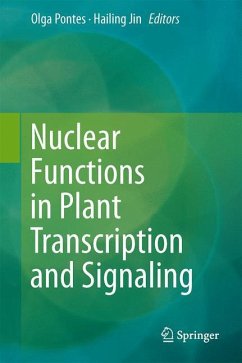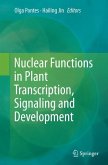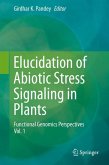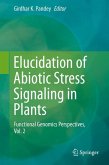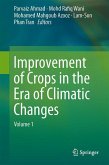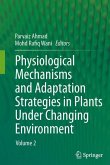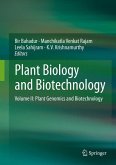This book compiles a series of landmark discussions on the recent advances in plant nuclear biology research, and offers new perspectives into the functional relevance of the arrangement of genomes and nuclear processes that impact plant physiology and development. The work provides insight as to how genes are switched on or off and are tuned to specific expression levels, which allow us to better predict plant phenotypes. Overall, a better understanding of the fundamentals of plant gene expression will aid in the more efficient design of numerous biotechnological applications and plant breeding programs. This new knowledge will provide a foundation for solving both agricultural and environmental problems as well as developing practices that enable global sustainability. Plant biology is also relevant to human biology, as several aspects of underlying mechanisms are conserved between both organisms. Understanding this shared biology will shed light on human diseases, and could lead to better therapies for cancer and genetic diseases.
The genome is more than a linear code as depicted by its DNA sequences as several interacting factors play a crucial role in shaping its organization and function. The complete sequences of a number of plant genomes and the recent advances of high-throughput technologies has fueled research efforts in the field of Plant Nuclear Biology unveiling numerous insights about the mechanisms underlying genome regulation. Genomic information is being integrated into molecular- and cellular-level mechanisms of the plant processes. A host of nuclear processes underlie key developmental processes as well as biotic and abiotic interactions. Non-coding RNAs have been increasingly recognized as players in gene expression and genome defense and integrity. However, in vivo, genomes exist as elaborate physical structures, and their functional properties are strongly determined by their cellular organization. Various types of subcellular structure have been identified in the nucleus, which are associatedwith transcription factors, RNA processing proteins and epigenetic regulators. Interestingly, these nuclear bodies display different behaviors in response to the environment. This book compiles a series of landmark discussions of the recent advances in plant nuclear biology research focusing in the functional relevance of the arrangement of genomes and nuclear processes that impact plant physiology and development.
The genome is more than a linear code as depicted by its DNA sequences as several interacting factors play a crucial role in shaping its organization and function. The complete sequences of a number of plant genomes and the recent advances of high-throughput technologies has fueled research efforts in the field of Plant Nuclear Biology unveiling numerous insights about the mechanisms underlying genome regulation. Genomic information is being integrated into molecular- and cellular-level mechanisms of the plant processes. A host of nuclear processes underlie key developmental processes as well as biotic and abiotic interactions. Non-coding RNAs have been increasingly recognized as players in gene expression and genome defense and integrity. However, in vivo, genomes exist as elaborate physical structures, and their functional properties are strongly determined by their cellular organization. Various types of subcellular structure have been identified in the nucleus, which are associatedwith transcription factors, RNA processing proteins and epigenetic regulators. Interestingly, these nuclear bodies display different behaviors in response to the environment. This book compiles a series of landmark discussions of the recent advances in plant nuclear biology research focusing in the functional relevance of the arrangement of genomes and nuclear processes that impact plant physiology and development.
"This is a very informative and balanced volume on the fascinating area of plant epigenetics. All authors have done a very good job to include the recent literature. ... for readers interested in plant epigenetics, it can be strongly recommended as a highly informative and well-balanced read." (Isabel Bäurle, Journal of Plant Physiology, Vol. 192, 2016)

